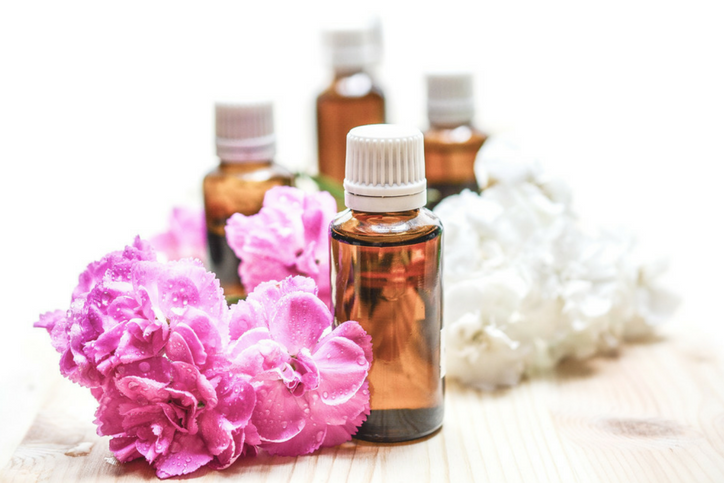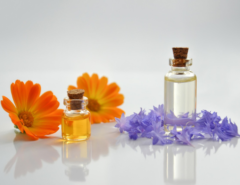Essential oils are concentrated liquids that contain the fragrance (scent) of a plant. They are often removed from the plant and added to soaps, perfumes, air fresheners, and cleaning products. They are also used as flavorings in food and drinks. Because essential oils come from plants, you may think they are harmless. As with most things, essential oils can be poisonous if they are used in the wrong way or in the wrong amount.
Essential Oils as Medicine?
Currently aromatherapy uses essential oils as an alternative to regular medicine. They are most often used by inhaling them or by rubbing them on the skin after mixing them with a plain oil or lotion. They can also be added to bath water. Applying the concentrated oil directly to the skin can cause rashes, allergic reactions or burns. You should be extra careful when applying the oil to sensitive areas like around the eyes and nose. Essential oils are rarely taken by mouth. They should only be swallowed if you are directed to do so by a trained and qualified specialist.
Who Regulates Essential Oils?
Be aware that only some essential oil and aromatherapy products are regulated. How aromatherapy products are regulated depends mainly on how they are intended to be used. Products that make claims on the label or advertising to treat or prevent a medical condition are considered drugs and thus regulated by the FDA (Food and Drug Administration). That means they have to be proven safe and effective before being sold. Regulation is the best way to ensure the products reliably contain the ingredients listed on the label. For non-regulated products, you cannot be sure what is in the bottle. For more on this, visit this page on the FDA’s website.
Commonly Used Essential Oils
- Peppermint is used for stomach discomfort. It’s important to choose the correct species of mint, as some types are poisonous; for example, pennyroyal oil is very poisonous to the liver.
- Wintergreen is used as a food flavoring and in some over-the-counter skin preparations to relieve pain. It creates a feeling of warmth because it causes blood vessels to enlarge. But oil of wintergreen can be deadly if it is swallowed directly from the bottle. This is like swallowing a large number of adult aspirin.
- Tea tree oil (also called melaleuca oil) is used for acne, fungal infections of the skin and nails, insect bites, lice and burns. If a child swallows as little as a mouthful, it can cause vomiting, diarrhea and/or confusion. It can also cause them to be unsteady on their feet.
- Nutmeg is safely used in food. If it is misused or abused, it can cause hallucinations and coma.
- Eucalyptus is used for its soothing effects when inhaled during a cold or cough. If swallowed, eucalyptus oil can cause seizures.
- Sage oil has been used as a scent, seasoning, and remedy. Swallowing more than a very small amount has caused seizures in children.
- Camphor is used as a moth repellant, in vaporizers, and as an ingredient in mouth and skin products. Even a small amount of camphor is dangerous if swallowed. Seizures can begin within only a few minutes. Poisoning can also happen when you apply skin products containing camphor to children more often than the label recommends or cover the applied area with extra clothing or blankets.
Essential Oil Safety
Safely using and storing essential oils is very important. They MUST be locked up, out of sight and reach of small children and pets at all times. If you have essential oils that you are no longer using, discard them as you would other medicines.
If someone swallows an essential oil, or a product containing essential oils, call the poison center immediately at 1-800-222-1222. Our nurses and pharmacists will help you figure out if this could be dangerous and tell you exactly what to do.
This post is modified from the January/February issue of our newsletter, Poison Prevention Press. Click here to download the information in a printable format.





Leave a Reply